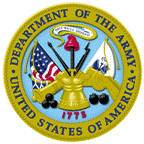United States Department of Defense
Document Type
Article
Date of this Version
2013
Citation
Published in Journal of Virology (2013) 87(7): 3801-3814. DOI:10.1128/JVI.02695-12
Abstract
Antigen-presenting cells (APCs) are critical targets of Ebola virus (EBOV) infection in vivo. However, the susceptibility of monocytes to infection is controversial. Studies indicate productive monocyte infection, and yet monocytes are also reported to be resistant to EBOV GP-mediated entry. In contrast, monocyte-derived macrophages and dendritic cells are permissive for both EBOV entry and replication. Here, freshly isolated monocytes are demonstrated to indeed be refractory to EBOV entry. However, EBOV binds monocytes, and delayed entry occurs during monocyte differentiation. Cultured monocytes spontaneously downregulate the expression of viral entry restriction factors such as interferon-inducible transmembrane proteins, while upregulating the expression of critical EBOV entry factors cathepsin B and NPC1. Moreover, these processes are accelerated by EBOV infection. Finally, ectopic expression of NPC1 is sufficient to rescue entry into an undifferentiated, normally nonpermissive monocytic cell line. These results define the molecular basis for infection of APCs and suggest means to limit APC infection.


